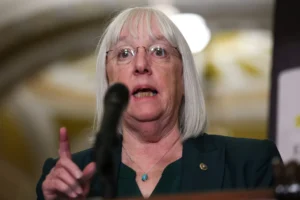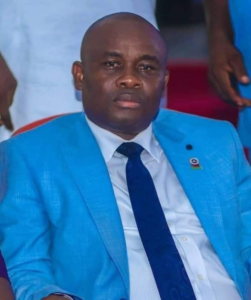President Bola Ahmed Tinubu has initiated the Resettlement Scheme for Persons Impacted by Conflict (RSPIC), aiming to address the humanitarian crisis caused by internal displacements across Nigeria.
This project signifies a shift in the government’s approach to internal displacement and conflict resolution, emphasizing long-term rehabilitation and reintegration of affected communities.
During the groundbreaking ceremony of the pilot phase in Tudun Biri, Kaduna State, President Tinubu, represented by Vice President Kashim Shettima, highlighted the significance of launching the intervention in this diverse state.
In a statement by his spokesman, Stanley Nkwocha, Tinubu said, “There couldn’t have been a better place for the take-off of this intervention than this diverse state. Kaduna State has offered us a launch pad to venture into the communities dislodged by conflict.”
The president emphasized the need to move beyond fear and preventable incidents, declaring, “For so long, we have been held hostage by the fear of ourselves and allowed preventable incidents to escalate into transgenerational disputes. Today, we gather to say, ‘Enough is enough.'”
Vice President Shettima previously inaugurated a steering committee in February to coordinate the initiative’s implementation, fulfilling President Tinubu’s promise to improve the lives of Nigerians. The committee, chaired by Minister of Housing and Urban Development Arc Ahmed Musa Dangiwa, includes representatives from the governors of the benefiting states, the Minister of Agriculture and Food Security, Sen. Abubakar Kyari, and key figures from the Economic and Financial Crimes Commission (EFCC), Bureau of Public Procurement (BPP), BUA Group, Dangote Group, and the National Emergency Management Agency (NEMA).
The project initially focuses on seven states disproportionately affected by farmers-herders conflicts: Sokoto, Kebbi, Benue, Katsina, Zamfara, Niger, and Kaduna.
President Tinubu expressed the administration’s determination to break the cycle of violence and displacement that has plagued various parts of the country for years, stating, “Our journey to this point has been long and arduous, but today, we converge in this historic city to demonstrate our resolve to overcome adversity.”
The RSPIC is a comprehensive intervention designed to go beyond mere infrastructure development. It aims to construct residences, roads, schools, and essential facilities for conflict victims, providing them with a dignified environment to live and dream.
Governor Uba Sani’s efforts in promoting unity were particularly praised by President Tinubu, who noted, “In just about a year in office, His Excellency Governor Uba Sani has been an inspiration for unity in this beautiful state. His approach is not only a template for other state governors but also for the nation at large.”
President Tinubu highlighted the national significance of the project, stating, “Conflict and displacement, to us, are not merely regional issues; they are national concerns that demand a unified response. They threaten the very fabric of our society, and it is only through justice, distribution of democratic dividends, and collaboration that we can overcome these challenges.”



























